
Willow Dawn Becker
Crime scene investigators have an impact out in the field, but also in the lab and even in the courtroom, providing testimony or expert opinion. The crime scene investigator (CSI) professors on our list of top come from a variety of backgrounds with many, but not all, having extensive service in law enforcement or for a police agency. Others have had interesting careers or experiences—with two on our list, yes, even being involved with underwater crime scene investigation. Who would have through a CSI career could take you there? Others have developed their own niche areas of interest or expertise.
Of course, it’s hard to sum up a lifetime of experience in a short bio, but a look at our list of top CSI professors can help you to decide if a CSI career, or even a specific school or program, could be right for you.
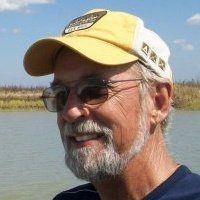
Program director of the Criminal Justice and Criminology program at Chaminade University in Honolulu, Ronald Becker was previously a criminal investigator for a sheriff's department in Montana. He also has his Juris Doctorate, practiced law for nearly a decade at a Texas firm, and has written numerous articles and several textbooks on crime science investigation. This includes the "Criminal Investigation Laboratory Manual" and "Underwater Forensic Investigation." He even founded the Annual Public Safety Diver Seminar and Competition sponsored by the Texas State University Underwater Institute. He belongs to organizations that include the Association of Criminal Justice Sciences, the National Academy of Police Divers and the Federal Bar Association.
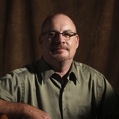
A senior member of the Department of Justice, Law and Society at California University of Pennsylvania, in Calif., Penn., Dr. John R. Cencich led the investigation into Slobodan Milosevic's reported war crimes in Croatia and served on the International Criminal Tribunal for the Former Yugoslavia for four years. He has more than 20 years experience as a police officer and investigator, also working as a U.S. Air Force Office of Special Investigations special agent. Additionally, he worked as a special attachment to Scotland Yard's Central Vice Unit, and has received more than 50 honors during his career. He received his Doctorate of Juridicial Science from Notre Dame University.

An undergraduate and graduate-level instructor at Virginia Commonwealth University, Dr. Marilyn Miller teaches crime scene investigation and forensic science classes. She has worked in law enforcement agencies in Florida, North Carolina and Pennsylvania , and testified more than 400 times as an expert witness in crime scene investigation and the forensic sciences. She's worked either as an active investigator or crime scene consultant in hundreds of cases, and also is a Fellow in the Criminalistics section of the American Academy of Forensic Science. While at VCU, she's presented real cases that she has worked on, including how she created reconstructions, to the school's Forensic Science Student Club.
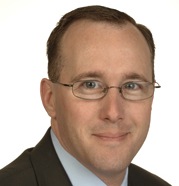
An adjunct professor with Loyola University in New Orleans, Timothy Scanlan is also the captain of the Jefferson Parish Sheriff's Office. He is qualified to testify as an expert witness in areas such as bloodstain pattern analysis, trace evidence analysis and firearms and toolmark examination and has testified in many different criminal trials. At the university, he teaches Criminalistics I- Crime Scene and Introduction to Forensic Science. He also acts as a guest lecturer and has presented research for organizations such as for the International Association for Identification, the American Academy of Forensic Sciences and the Louisiana Association of Forensic Sciences. He is currently working on a doctoral degree in Public Administration with a specialization in Homeland Security Police and Coordination.
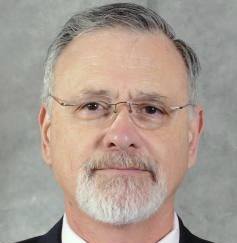
Thomas Mauriello is a lecturer and lab instructor at the University of Maryland and also author of the book "The Dollhouse Murders," which depicts the importance of crime scene investigation. He has been featured on television in shows such as "Forensics: You Decide" and "The Lizzie Borden Murders" and has appeared on news channels including ABC, CBS and FOX. He served for more than 30 years with the Department of Defense in many different roles including special agent, and is a member of organizations including the International Association for Identification, the American Academy of Forensic Sciences, and the Maryland Polygraph Association.
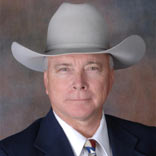
A forensics science lecturer at Baylor University in Waco, Texas, Jim Huggins previously worked as a Texas Ranger and for the Department of Public Safety for nearly 30 years. He teaches classes that include Crime Scene Investigation, Impression Evidence, Bloodstain Pattern Analysis, Trace Evidence, and others. He does workshops and lecturers, acts as an expert witness in criminal cases, and holds various certifications including as Hostage Negotiator, Forensic Hypnotist, and Forensic Polygraph Examiner. In 2012, he and another professor took students to the southern U.S. border to help exhume the bodies of illegal border crossers to extract their DNA and to help to try to identify them to bring closure to families. In addition to crime scene reconstruction, his other research interests include bloodstain pattern analysis, and shooting incident reconstruction.

Previously a federal law enforcement officer with a career spanning 24 years, Ricky Langlois teaches undergraduate students at Florida Atlantic University. He served as a special agent in charge of field offices that included Atlanta, Jacksonville, and Miami. He particularly emphasizes that students gain a solid foundation in needed law enforcement skills and procedures. Courses that he has taught include Policing in America and Homeland Security and Terrorism, and he even served as an underwater crime scene investigator along U.S. Eastern seaports as part of the Department of Homeland Security's Blue Lightning dive team.
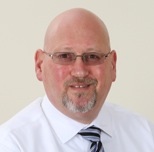
Peter Massey is a lecturer at the Henry C. Lee College of Criminal Justice and Forensic Sciences at the University of New Haven. He has an extensive professional career including working as a police officer with the Hamden Department of Police Services in Connecticut, rising in the ranks and receiving many commendations while there. His work involved the investigation of crime scenes ranging from assaults to robberies to suspicious deaths. He retired after 20 years of service to become the Training Coordinator for the National Crime Scene Training and Technology Center at the Henry C. Lee Institute of Forensic Science. He is a member of several professional organizations, has traveled extensively to give talks, and acts as an expert witness. He is currently working on a doctoral degree.
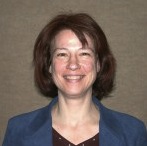
Kim Duddy works with the Southern Police Institute at the University of Louisville teaching law enforcement professionals about homicide investigations. She worked for the Washington State Patrol Seattle Crime Laboratory for more than 20 years, gaining expertise in bloodstain pattern analysis, crime scene reconstruction, and shooting incident reconstruction. She is certified as a senior crime analyst through the International Association for Identification and has been president twice for the Association for Crime Scene Reconstruction. She is qualified as an expert witness in many areas including crime scene reconstruction and provides training and workshops to law enforcement agencies and medical examiners' offices.
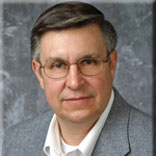
Dr. Ron Thrasher is a professor at the Stillwater campus of Oklahoma State University who retired as the Deputy Chief of Police for the Stillwater Police Department. With more than 33 years of police department service, he has extensive experience in crime scene investigation and expertise in the behavioral analysis of violent crime scenes as well as offender profiling, and other related fields. He's been published many different times and presented at conferences at the community, state and national levels. He received his doctoral degree, master's degree and bachelor's degree from OSU.
The following criteria were used in compiling this list of Top CSI Professors. Not all criteria below applied to each and every professor, but many of the listed professors have:
Many of these professors have become involved in research or projects that have looked at new approaches in information assurance or protecting privacy on the Internet.
Many of these instructors have obtained a master’s degree in criminal justice, forensics sciences, or a related field. Some have even obtained a doctoral or advanced graduate degree. Many show a keen interest in further education and training, some have even been published, and at least two instructors on this list are currently working on a doctoral-level program..
Many professors on this list have provided training or workshops in their niche fields to police forces, law enforcement agencies, or similar groups, allowing for their knowledge and experience to be shared. The desire to pass on their learned experiences has led some of the instructors on this list into the profession of college-level teaching.

Willow Dawn Becker
Willow is a blogger, parent, former educator and regular contributor to www.forensicscolleges.com. When she's not writing about forensic science, you'll find her blogging about education online, or enjoying the beauty of Oregon.